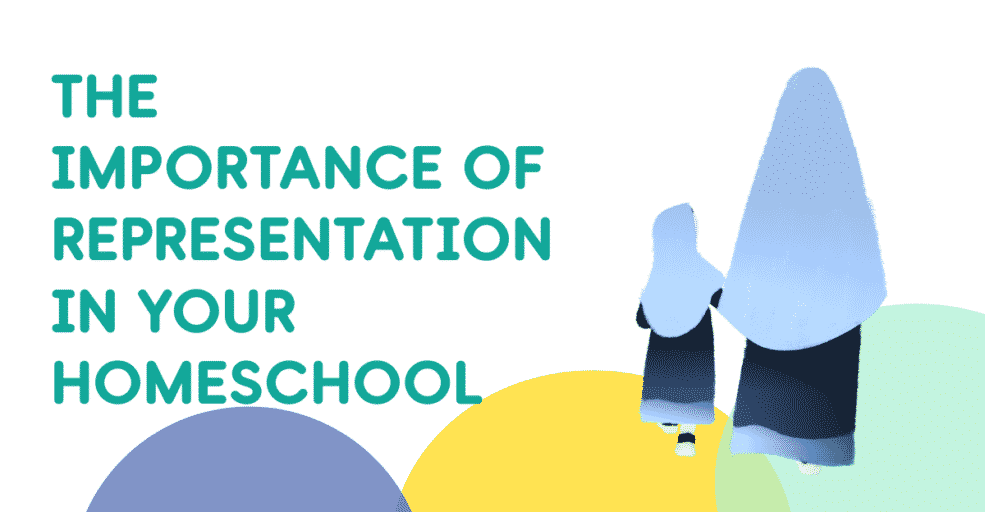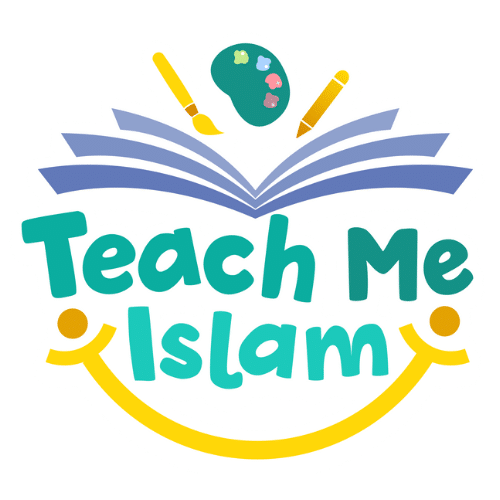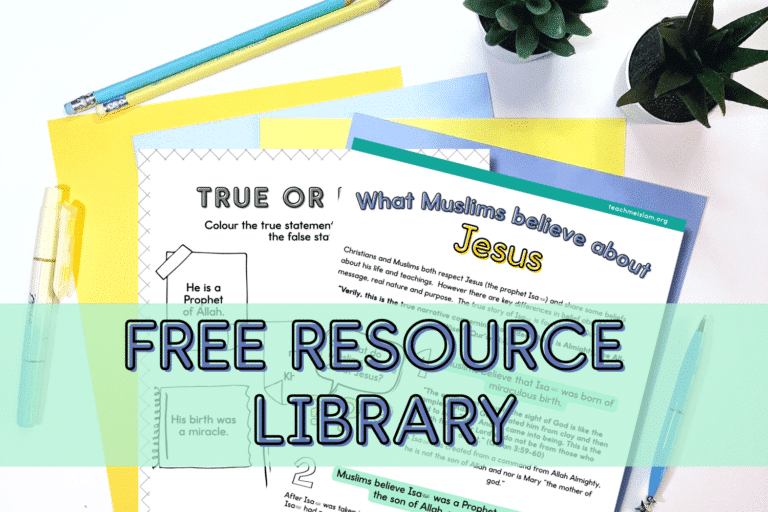How important is representation in your Muslim homeschool? Do you have more windows or mirrors in your homeschool? No, I am not talking about your interior design! I’m asking about whether your homeschool reflects and represents your own children’s perspectives and experiences or if it mainly gives a window into others.
Why is representation so important?
It might not seem such a high priority, doesn’t education offer the chance to learn something new? Yes, that’s true, but not if means that children spend all of their time experiencing other cultures and ideas. An incorrect balance undermines their own experiences and defines normal as something other than them! Think about the characters in the books they read, the historical figures they learn about, the time periods in history, the places in geography, the examples in their textbooks, are these relevant to their own experiences?
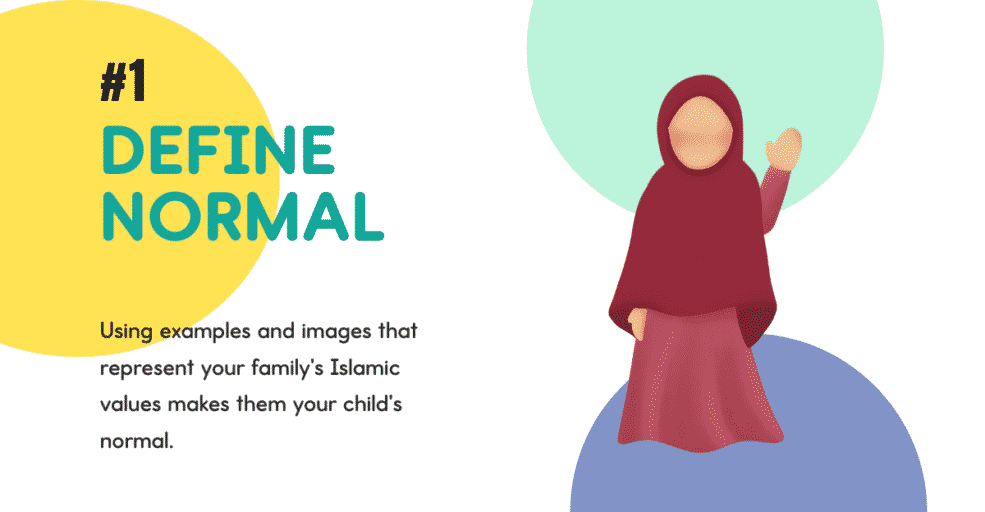
Define Normal
An incredible advantage of homeschooling is the ability to create an environment where your children feel accepted for who they are. If you represent your child and their experiences in your curriculum choices and environment, you can validate them and their perspective. A Muslim child who reads books about other Muslim children, who pray, fast, worship Allah, obey their parents will feel the joy of a shared experience. It will shape their perception of what is normal and you can do this is a very positive way.
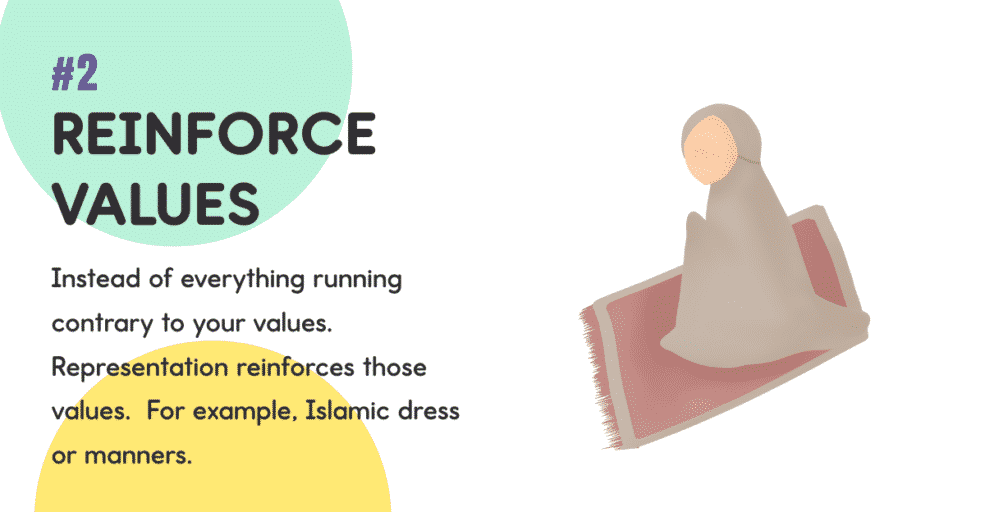
Reinforce Values
It is incredibly confusing for kids to be constantly exposed to two completely different ways of thinking and sets of values. Honestly, lots of adults struggle with it! Of course, everyone encounters different ways of life, this is natural but if kids are educated in this way it’s hard for them to know what is right. Educational materials that included Muslim representation and reinforce your family values prevent the moral confusion that inevitably occurs when children are educated equally in opposing moralities.
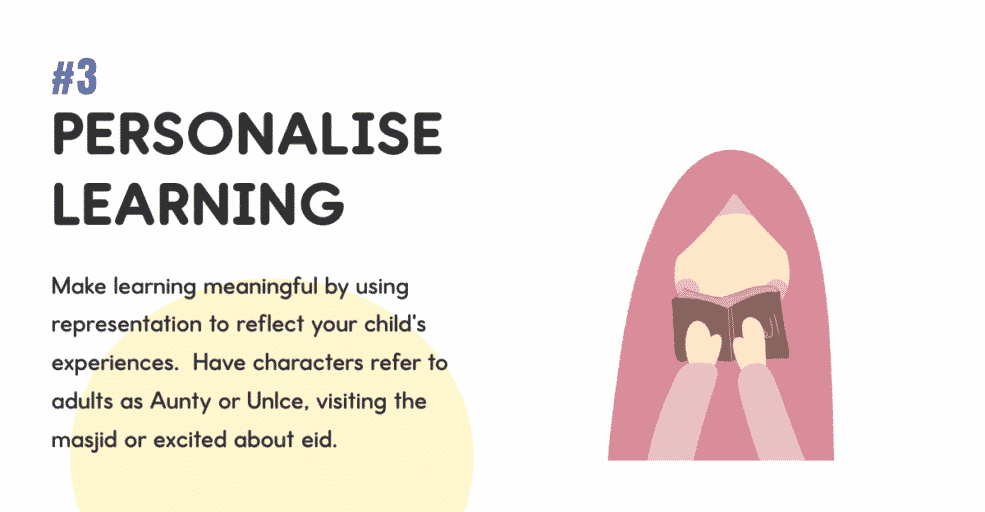
Personalise learning
When you personalise a child’s learning it makes the experience so much more meaningful. An example is when they learn the alphabet, what is the first letter that children enthusiastically learn? The first letter of their name! When children refer to adults as Auntie and Uncle, are excited about eid, have Qur’an lessons your children relate, pay attention and learn more.
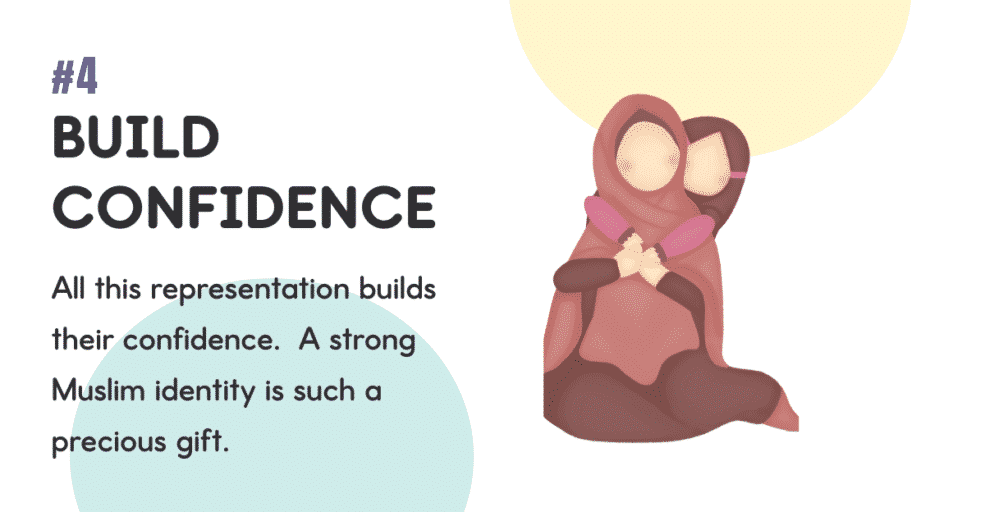
Increase confidence
Representation builds their confidence in who they are. A strong Muslim identity is an incredible gift for a child. Their deen becomes a source of pride and confidence rather than something to be hidden or ashamed of.
Here are some other blog posts you may be interested in:
5 ways to make your Muslim homeschool more productive
How to teach Islamic content all day long
6 Teaching Techniques to Teach Kids of Different Ages
7 surprising ways they teach Islamic Studies in Muslim countries

